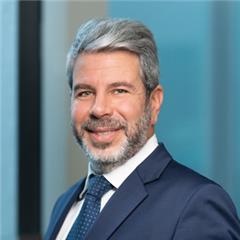3rd United Nations Ocean Conference, SUEZ innovates to protect oceans and coastal areas
SUEZ offers its customers innovative solutions to deliver better water and waste services: improving waste sorting and recovery, increasing wastewater treatment to remove micropollutants and microplastics, optimizing sanitation network and eco-design of infrastructures, to limit pollution of the environment, and ultimately preserve the oceans.
Preserving coastal areas and the people living there
SUEZ supports coastal communities’ adaptation to new marine conditions, anticipate risks and support the resilience of these areas.
- Anticipating the risks of marine submersion and coastal erosion to help communities adapt and protect against rising sea levels. In Biarritz, a town highly exposed to strong Atlantic swells, SUEZ's Rivages Pro Tech centre of expertise provides 3-to-5 days wave impact forecasts to protect the population and infrastructures. This predictive technology, backed by 10 years of research with local authorities and scientific partners, continues to be enhanced by the work of the KOSTARISK coastal risk research laboratory, a joint venture between the University of Pau and Pays de l'Adour, the AZTI Foundation and SUEZ's Rivages Pro Tech centre.
- Nature-based adaptation solutions to reduce infrastructure vulnerability and restore coastal ecosystems. The mangrove has clear environmental benefits, offering protection against coastal erosion, acting as a carbon sink and providing a habitat for many animal and fish species. In Martinique, SUEZ and the Centre de la Martinique urban community, in partnership with the French Biodiversity Agency, are developing an experimental nature-based solution to stimulate the expansion of mangroves at the entrance to the Étang Z'Abricots marina. Lightweight structures made of wood, bamboo and coconut fibre have been installed over 500 m² at the tip of Pointe des Sables to create favourable conditions for the mangrove to spread, forming a natural screen to limit turbulence in the harbour and protect infrastructure from cyclones and rising sea levels.
- Monitoring bathing water quality, in addition to the Regional Health Agencies’ controls, to promote sustainable blue tourism. SUEZ has developed a rapid molecular biology solution to manage the preventive opening or closure of beaches. This patented technology is deployed in around 30 municipalities in France. On the Basque coast, in St Malo in Brittany and Marseille on the Mediterranean coast, such analyses are supplemented by water quality trend forecasts, which are produced using predictive models deployed by SUEZ to anticipate health risks.
Protecting oceans from pollution and regenerating ecosystems
Furthermore, SUEZ develops solutions for the marine environment to increase environmental integration of facilities, restore marine ecosystems, that are particularly sensitive and exposed to human activity, and contribute to improving scientific knowledge:
- Limit carbon footprint and promote environmental integration of infrastructures. In Nice, SUEZ designs and builds an “all-in-one” wastewater treatment and recovery complex, Haliotis 2. The facility, located on the edge of the Baie des Anges, has been designed to limit visual impact and promote biodiversity: 600 trees and hedges will be planted, and permeable surfaces will be increased by nearly 70%, compared to the previous plant, to promote the return of rainwater to the ground and limit runoff.
- Ecological recovery processes for maritime infrastructures to regenerate marine biodiversity. In Toulon, SUEZ took part in the renovation project for La Grande Jetée, in partnership with the Ministry of the Armed Forces, to add ecological functions to anthropised spaces. The Group installed ten artificial rock basins and planted 150 clusters of cystoseira algae, endemic to the Mediterranean, in partnership with the Ifremer research institute, to boost fauna and flora in the harbour. This Cystore® ecological engineering solution has been deployed by SUEZ in several Mediterranean cities (Marseille, Monaco, Antibes).
- Acoustic biomonitoring technologies for aquatic environment to assess marine biodiversity and evaluate the impact of human activities on marine ecosystems. In Bora Bora, French Polynesia, SUEZ has been conducting an environmental study of the lagoon since 2019, in partnership with the local authority, the CRIOBE1 research centre and Ia Vai Ma Noa Bora Bora association. Once the study is complete, SUEZ intends to install an environmental monitoring system, comprising physical and chemical sensors and acoustic sensors, to assess the environmental situation in the lagoon.
SUEZ also contributes to the development of a sustainable blue economy by supporting the decarbonization of maritime transport. In October 2024, the Group signed a memorandum of understanding with CMA CGM to produce 100,000 tonnes of biomethane per year by 2030, from waste recovery, to power CMA CGM's gas-powered ships. In addition, the oceanography subsidiary Actimar produces marine current forecasts to help transport companies optimise shipping routes and reduce fuel consumption.
These diverse and varied initiatives have been developed by SUEZ in different geographical areas to protect the oceans and the people who live there.
